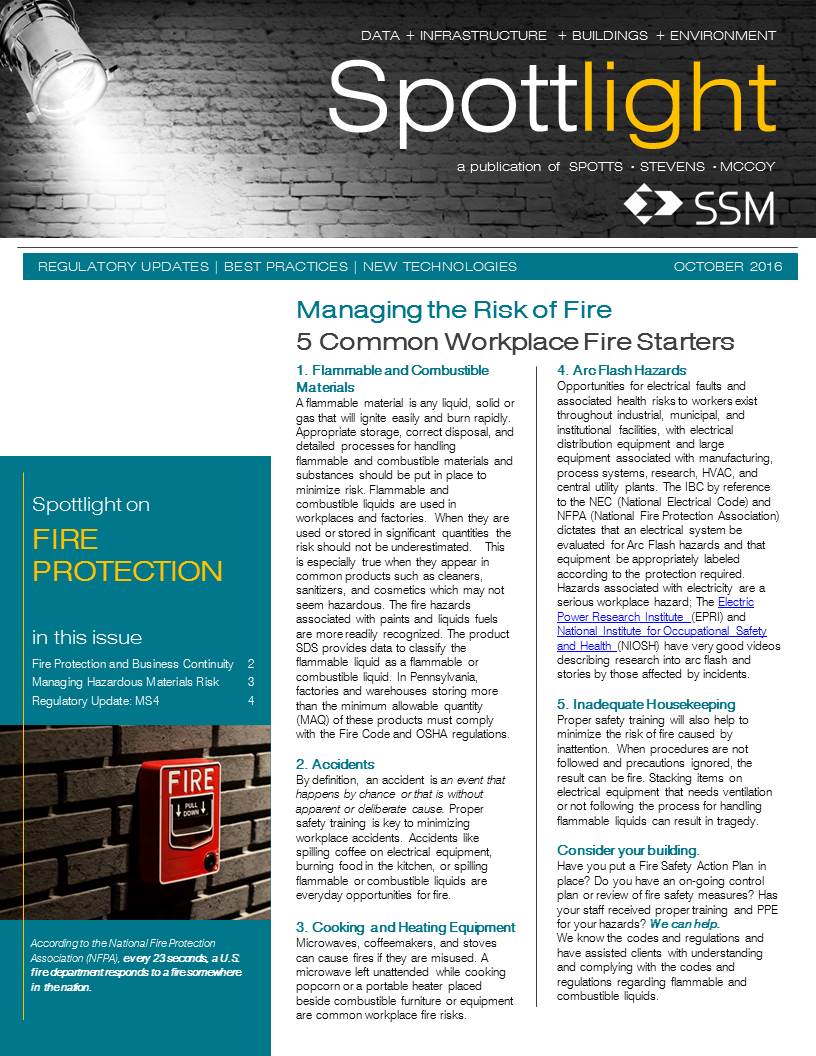Spottlight on Fire Prevention - October 2016
/Managing the Risk of Fire: 5 commonplace workplace fire starters
- Flammable and Combustible Materials
- Accidents
- Cooking and Heating Equipment
- ArcFlash Hazards
- Inadequate Housekeeping
Mitigating the Risk Associated with Hazardous Materials
The storage, issue, use, and disposal of flammable and combustible materials falls under the rules and regulations promulgated under OSHA and the National Fire Protection Association.
The Hazard Communication Standard
(29 CFR 1910.1200(g)) was revised in 2012 to require that the chemical manufacturer, distributor, or importer provided Safety Data Sheets (SDSs), formerly MSDSs or Material Safety Data Sheets, for each hazardous chemical to downstream users to communicate information on these hazards. The information contained in the SDS is largely the same as the MSDS, except now the SDSs are required to be presented in a consistent user-friendly, 16-section format.
Fire Protection Critical to Business Continuity
Fire protection systems are essential to the safety of your employees and protection of your property. But more than that, these systems are essential in helping you to manage the risks associated with business continuity. Imagine the impact on your business or organization if a key production line were to go off-line for an extended period of time, if the runoff from a fire event were to cause an environmental impact, or if the assets in your building (from equipment to historical artefacts) were to be destroyed.
Regulatory Update: Preparing for MS4 Regulations
Under the new Municipal Separate Storm Sewer Systems (MS4) regulations that will take effect in 2018, new permittees will need to comply with additional obligations to meet the revised general stormwater permit requirements under PAG-13. Municipal employees, engineers, and contractors can prepare by reviewing the updated Minimum Control Measures (MCMs), and organizing current practices and training to determine possible gaps that fall short of their permit conditions.


